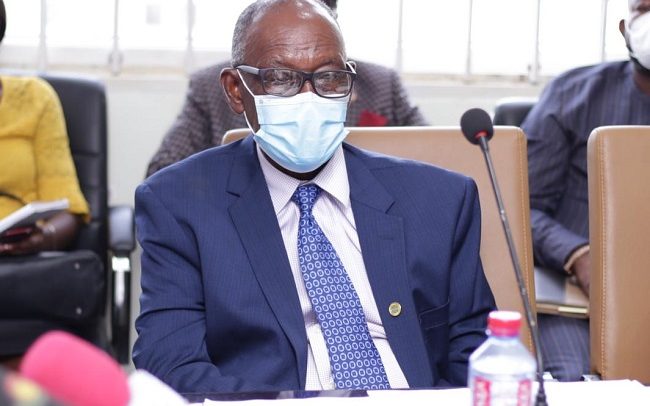Ing. Kwesi Abbey Sam, Acting Board Chairman of the Engineering Council
THE ENGINEERING Council, Ghana (ECGH) has announced that practitioners will not be allowed to practice without licences from November 1, this year.
Thiscomes after government passed the Engineering Council Regulations, 2020 (L.I. 2410)which among others, enables the Council to license relevant and appropriate engineering bodies to certifyindividuals and corporate bodies for initial and continuing registration as mandated by law under the Engineering Council Act, 2011 (Act 819).
The announcement was made when members of the Council together with some partner institutions including the Ghana Institution of Engineering (GhIE) and the Institution of Engineering and Technology (IET-GH) paid a courtesy call on the Minister for Works and Housing, Francis Asenso-Boakye at his office in Accra on Wednesday.
In his remarks, the Acting Board Chairman of the Council, Ing. Kwesi Abbey Sam announced that together with their licensed bodies, the Council would register all those identified in the Act and Regulations as much as possible, declaring the year 2021 as “a year of action”.
“Practitioners have up to a year [between when the L.I. 2410 was passed in October last year to October this year] as a transitional period to get themselves duly registered in order to continue with their work,” he said.
According to him, persons who fail to register within this period will not be allowed to practice [from November 1, 2021] and would be dealt with in accordance with the relevant laws if found practicing without the requisite licence.
He thus entreated engineering practitioners including professional engineers, professional engineering technologists, engineering technicians and engineering craftsmen, as well as engineering firms and units including consulting engineering firms, engineering contracting companies, engineering service providers, manufacturing companies and vendors of machinery, equipment, appliances and engineering materials to visit any of the licensed bodies to register.
“The licensing and registration also affects all expatriate engineering practitioners and international companies working in Ghana,” he added.
On his part, the Minister for Works and Housing, Francis Asenso-Boakye, intimated that the effective regulation of engineering is a basic requirement in any country as engineering affects every facet of life.
He thus assured that “the Ministry of Works and Housing will work hard to resource the Council in order to strengthen monitoring and evaluation of the performance of engineering practitioners, firms and units.”
He also appealed to all stakeholders to support the education and sensitisation of the engineering community, including members of licensed bodies in the creation of awareness.
By Nii Adjei Mensahfio


